Session Organizer: Juergen Konczak, University of Minnesota
Moderator: Shanie Jayasinghe, University of Minnesota
In light of ever-increasing health care costs, the use of robotic devices for the physical rehabilitation of neurological disorders such as stroke or spinal cord injury has been increasingly promoted over the last decade. This session will highlight that robotic devices also hold great potential to advance neurophysiological and neurological research, because they allow to create closely controlled experimental environments, while providing highly sensitive, objective outcome measures. Speakers will showcase three different robotic devices that are used to assess sensorimotor function and learning in clinical and non-clinical populations.
Dyad Motor Learning in a Wrist-robotic Environment: Learning together is better than learning alone
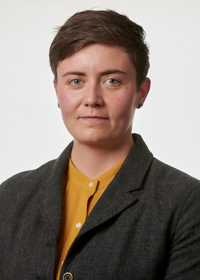
Leoni Winter
Human Sensorimotor Control Laboratory, School of Kinesiology, University of Minnesota
Center for Clinical Movement Science, University of Minnesota
Abstract: Robot-assisted therapy has become an established neurorehabilitation tool. However, its use is limited by high therapy cost and access to robotic devices. Dyad learning is a learning paradigm where participants alternate between observation and physical practice. Evidence indicates that dyad learning leads to better motor outcomes and reduced practice time compared to physical practice alone. Implementing dyad learning in robot-assisted rehabilitation has the potential to increase patient outcomes and learning speed. This study aims to determine the effects of dyad learning on motor performance in a controlled wrist-robotic environment to evaluate its potential use in rehabilitation settings.
Bio: Viola is a PhD candidate in the Human Sensorimotor Control Laboratory in the School of Kinesiology at the University of Minnesota. She is a trained physical therapist with a strong interest in the intersection of movement science and engineering. Her research focuses on motor learning and the use of robotic devices in neurorehabilitation.
Robot-aided Assessment of Ankle Proprioceptive Acuity and Associated Brain Lesion Following Stroke
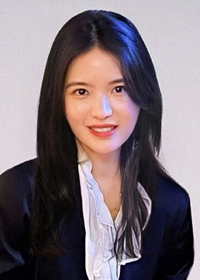
Qiyin Huang
Doctoral Candidate in Biomechanics and Clinical Movement Neuroscience
Human Sensorimotor Control Laboratory, School of Kinesiology, University of Minnesota
Abstract: Compromised ankle proprioception is common after stroke and is associated with gait and balance deficits. However, clinical practice lacks objective and accurate instruments measuring ankle proprioceptive function. This presentation will focus on a new robotic technology to objectively assess ankle proprioceptive function. Signs of position and motion sense were examined in 12 stroke survivors and age and gender-matched healthy adults. Results indicate that psychophysical discrimination thresholds were elevated for both ankle position and motion sense in the stroke group. A subsequent lesion-behavior mapping analysis determined the relationship between brain lesion locations and proprioceptive deficits. The findings document that robotic technology coupled with adaptive psychophysical methods can yield objective data on proprioceptive dysfunction.
Bio: Qiyin received her B.S. in sport medicine and physical therapy from Beijing Sport University and her M.S. in biomechanics and neuromotor control from the University of Minnesota. Her current research focuses on developing robotic technology to quantify limb proprioception (i.e., body awareness) in people with stroke and to identify the associated brain lesions. Her experience in human clinical trial research reinforced her research goal: help to improve the quality of life of people with neurological diseases through science.
Combining Gaze Tracking and Robotics to Study Motor Control in Pediatric Populations: Opportunities and Challenges
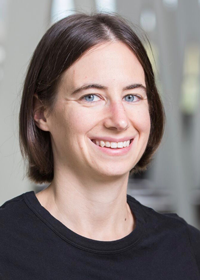
Rachel Hawe
Assistant Professor, School of Kinesiology, University of Minnesota
Director, NeuroRehabilitation Across the Lifespan Lab (NeuRAL)
Abstract: Vision is an integral part of motor planning and execution. This talk will demonstrate how combining robotic measures of sensorimotor performance with gaze tracking can offer novel insights into motor control in typical development and children with motor impairments including cerebral palsy. The talk will also address technical and practical challenges in use gaze tracking in pediatric populations.
Bio: Rachel Hawe, DPT, PhD is an Assistant Professor in the School of Kinesiology at the University of Minnesota where she directs the NeuroRehabilitation Across the Lifespan Lab (NeuRAL). Dr. Hawe has trained as a biomedical engineer and physical therapist. Her current research focuses on bilateral coordination and visuospatial attention in adult stroke and hemiparetic cerebral palsy.
Session Organizer Bios
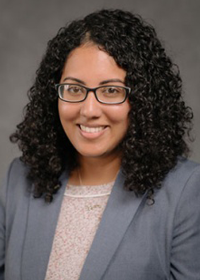
Shanie Jayasinghe
Assistant Professor, Divisions of Physical Therapy & Rehabilitation Science, Department of Rehabilitation Medicine, University of Minnesota
Dr. Jayasinghe is a tenure-track assistant professor in the Divisions of Physical Therapy & Rehabilitation Science. She received her BS in Biomedical Engineering from Georgia Institute of Technology. She then attended the University of Southern California where she received both her MS and PhD in Biomedical Engineering. Dr. Jayasinghe completed postdoctoral training at Pennsylvania State University’s College of Medicine prior to joining the U of M. Dr. Jayasinghe uses her engineering foundation to study clinically relevant questions related to upper limb movement. She is specifically interested in exploring the role of cognition in sensorimotor control in chronic stroke survivors.
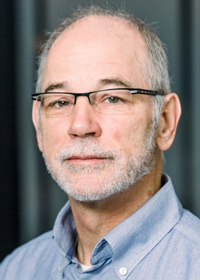
Jürgen Konczak
Professor of Biomechanics and Neuromotor Control, Director of Center for Clinical Movement Science, University of Minnesota
Jürgen Konczak is a Full Professor in the School of Kinesiology at the University of Minnesota. He is the head of the Human Sensorimotor Control Laboratory and also serves as director of a university-wide Center for Clinical Movement Science that includes over 30 faculty from the allied health, clinical, engineering and movement sciences. His research focuses on the neurophysiology and biomechanics of human motor function in clinical and special populations. He has published extensively in the area of neuromotor control, motor development and motor dysfunction due to neurological diseases such as ataxia, Parkinson's disease and dystonia. His research has been funded by the U.S. National Institutes of Health, the U.S. National Science Foundation, the German Science Foundation and the European Commission.